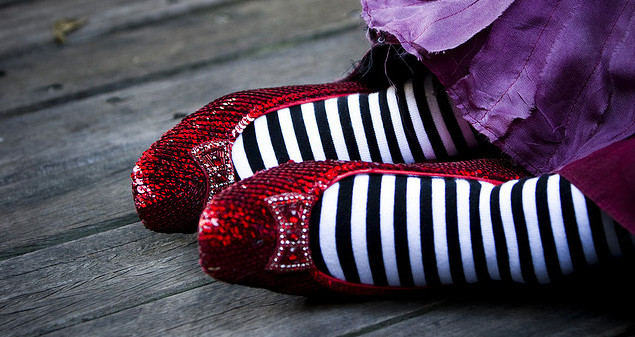This past summer wiped me out. I know it’s mid December already, but the memory of that long, hot, burnout of a summer kind of frames the (relative) peace and beauty of this winter season for me.
Just to state the obvious, summer break is way too long. Two months of vacation? In a row?
By the time the first day of school rolled around, and a little order began to poke its head back into our lives, I thought I might explode with the joy of it all.
Then three weeks later: Bam! High Holy Days in full force. Intellectually, I know this is a time of intense awe, fear, joy, and return. But to be completely honest, my Rosh Hashanah and Yom Kippur were spiritually dehydrated (again). I didn’t tap into any of that in a deep way. I came into the holidays feeling holistically depleted. Well aware that the main point of the holidays was union with my Creator, all I was able to muster was the most basic and superficial connection.
My High Holiday prayers went something like: “G-d, Please know that I love You. I want You to be King, I want to be Your servant, but I’m totally tapped out, so please take it easy on me; Bless us with the best year ever, Amen.”
Sweet, but not the depth I’ve come to expect of myself.
Rosh Hashanah morphed into Yom Kippur, which led, blessedly, into Sukkot.
And then, like a dream, it was over. Simchat Torah gave way to just a regular Monday where I found myself back in the kitchen at 6:30 a.m. scrambling eggs, filling up water bottles, and cutting peanut butter and honey sandwiches in half. Lo and behold, it was in those packed lunches and morning “bye-bye” kisses that I started to feel my spiritual mojo resurface.
It wasn’t the drum roll of the Days of Awe that got me on track, it was the holiday-less-ness of the month of Cheshvan that followed it. It was the simple living life with a consistent routine (and the realization that personal space for Mama breeds good things to all in her radar). It may not be so elevated or spiritual, I tend to find my connection with matters of the soul much more in the mundane than in the Holy. It’s through the simple things, like new book smell, bouncy girl curls, and family dinnertime that I finally tapped back in.
G-d in the day-in, day out is the G‑d I can relate to. Now that all the blockbuster holidays have passed, I feel like my soul is in a bathrobe and fuzzy slippers, just living with G‑d, not performing for Him.
That’s what the Hebrew month Cheshvan is all about after all. The Kabbalists refer to Cheshvan as our time to build our relationship with G‑d as our Partner in our everyday lives. It is the time in our spiritual marriage to G‑d when the wedding (Yom Kippur) is over, all the guests have gone home (Shmini Artzeret), and we unpack all the stuff we have acquired through gift and through merit, and get down to the business of actually being married.
So now what?
Like any marriage, ripe as it should be with fuzzy slippers moments, we should also strive for more than just comfort with our Heavenly Partner. A healthy and balanced marriage needs a little fire, too.
That’s where the month of Kislev and its famed Chanukah festival comes in.
For a thriving, passionate, and meaningful relationship, with our spouses and with regard to our spiritual lives too, we need to add some heat. All parties involved deserve that kind of energy. Interestingly, Chanukah, which begins in Kislev, isn’t a Biblical festival at all. G‑d didn’t issue a unilateral commandment for us to light the menorah like He did when He decreed Yom Kippur a fast day or Sukkot a week of festive hut-dwelling. We initiated the idea. Chanukah was instituted by us, the Jewish people, (more specifically the rabbis among us in 139 BCE), as a means to acknowledge Him, and His commitment to us throughout the darkest of times.
This serves as beautiful instruction for any intimate relationships. We can sit around and wait for our partner to waltz in and do something fabulously romantic; wait for them to make the first move. Or, we can take some initiative and responsibility for our relationship and create that heat. Chanukah is the time where we are expected to take off our spiritual fuzzy slippers and put on some heels; bring our relationship to the next level. Chanukah gives us the tools, both physical and spiritual, to bring fire and passion into our lives.
Throughout the eight days of Chanukah, we add one light to the menorah each night. Each night we build on what existed yesterday and we take it one step further today. Through eight nights of candlelit ritual, we add new dimensions of commitment, gratitude, and passion to our lives.
And we get to eat copious amounts of fried food in the process.
If that ain’t romance, then I don’t know what is.
